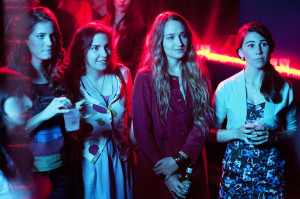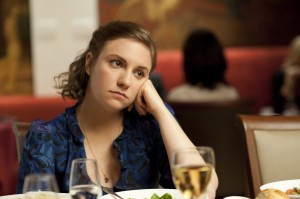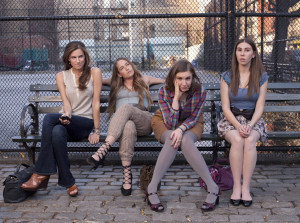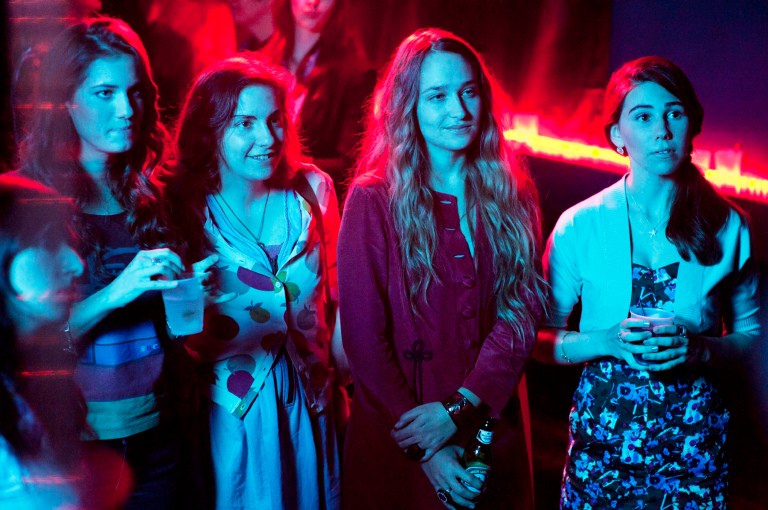
The Internet has been abuzz for weeks now with girl talk: that is, speculation surrounding HBO’s new Judd Apatow-produced comedy “Girls.” Created, written and directed by wunderkind Lena Dunham, who made waves with her 2009 debut feature “Tiny Furniture,” the show has been touted as our generation’s “Sex and the City.”
Having seen the highly anticipated pilot, I can tell you that while “Girls” centers on the personal lives of four female friends living in New York City, the similarities end there. Dunham’s cast is younger, less fixed into static archetypes and have interactions and misadventures reminiscent of you and your best friend. Not to mention they live in Brooklyn, not Manhattan. If anything, “Girls” is more like a love letter to all of us who grew up watching Carrie Bradshaw and company cavorting around as over-glamorized manifestations of female empowerment, only to enter the messy world of adulthood and realize that it’s not all shiny Manolos, high-powered careers and glitzy parties.

Trying to find themselves in the midst of those terrifying years of post-college limbo are Hannah (Dunham), an aspiring writer who loses both her unpaid internship and the financial support of her parents in the pilot; her responsible and uptight roommate, Marnie (Allison Williams); their newly returned bohemian friend, Jessa (Jemima Kirke); and the latter’s bubbly and naive cousin, Shoshanna (Zosia Mamet). While at the outset, these may just seem like tropes reformulated for the hipster set, Dunham’s writing reveals the nuances of identities not yet fixed, since, after all, the girls are only in their early twenties.
The thirty-minute pilot alone tackles head-on issues that are all too familiar for those in my cohort, like body insecurity, settling for unpaid internships in the current economy, guys who start treating you like crap just as soon as the sex is over, pregnancy scares and staging friend-interventions. And don’t be fooled by the network’s billing of the show as a comedy; the humor tends to be subtle and, at times, “Girls” hits so close to home that it’s almost uncomfortable to watch.
“I think that I may be the voice of my generation,” says Hannah to her parents in a tragically comic, opiate-induced attempt to regain their financial support.
“Or at least,” she qualifies, “A voice of a generation.”
“Girls” definitely won’t resonate with everyone, but it succeeds in capturing something of what it’s like to be newly cast out into the real world in a way that feels organic rather than reductive and trivializing (ahem, all those other shows with “girl” in the title). But unfortunately for Dunham, the greater the hype, the harsher the backlash.

Although the racially homogenous casting does little to prevent interpretations of the show as a study in #whitegirlproblems, as a non-white viewer I would argue that the characters’ issues have less to do with race than with being from a liberal arts-educated, upper-middle-class background in the same way that Christian Lander’s “Stuff White People Like” pokes fun at a particular slice of the socioeconomic strata rather than consumers’ actual skin color.
So while the lack of onscreen diversity in a show set in present-day New York City is frustratingly dissonant, there is no denying that “Girls” is thematically and narratively honest in a way that many shows, especially those targeted at young women, simply aren’t these days. Baby steps, people, baby steps.
“Girls” airs Sunday nights at 10:30 p.m. on HBO. Catch the first few episodes for free on YouTube via HBO’s channel.
